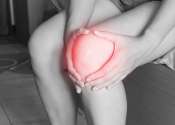Last update:
Allergy and immunology news
In Cordoba, the grass pollen season has grown longer over the last 23 years
A study analyzes the relationship between pollen and meteorological data spanning 23 years, verifying how the wind impacts each phase of the pollen season differently, thereby helping to manage and prevent allergy seasons. ...
21 hours ago
0
0
Why visceral fat triggers diabetes: Study points to loss of protective macrophages
Scientists at the University of Pittsburgh School of Medicine discovered a surprising new way the body can fight insulin resistance and diabetes—by boosting a special type of "good" immune cell in fat tissue.
Feb 12, 2026
0
33
Unraveling the mystery of why some cancer treatments stop working
Cancer researchers working on immunotherapies have made a big discovery: SLAMF6, a molecule on the surface of immune cells that prevents T cells from effectively attacking tumors—and, in mice, they've found a way to neutralize ...
Feb 12, 2026
0
0

Rallying more T-cells to immunotherapy's fight against cancer
Immune Checkpoint Blockade (ICB) has revolutionized the treatment of cancers like melanoma, but up to 60% of patients don't respond to this immunotherapy for reasons not yet fully understood. Australian scientists have found ...
Feb 12, 2026
0
0

Gut microbiome may be the link to gluten sensitivity without celiac disease
The gut microbiome may play an important role in how the immune system responds to gluten, even in people who do not have celiac disease. The findings, which could help explain why some people feel sick after eating gluten, ...
Feb 12, 2026
0
0

Major depressive disorder shares immune abnormalities and potential therapies with inflammatory skin diseases
A team of leading clinical research scientists from the Departments of Psychiatry and Dermatology at the Icahn School of Medicine at Mount Sinai has found that the serum of patients with major depressive disorder shares immune ...
Feb 11, 2026
0
1

Shining new light on how cytokines manage immune response
Scientists in the Blavatnik Institute at Harvard Medical School and MIT have created a new family of tools that, for the first time, illuminates the missing half of how the immune system uses molecules called cytokines to ...
Feb 11, 2026
0
17

Why asthma can hit women harder: Estrogen-linked IL-33 ramps up lung inflammation
Asthma affects millions of people worldwide, and adult women experience the condition more frequently—and often more severely—than men. Symptoms can also fluctuate during puberty, pregnancy and menopause, yet the biological ...
Feb 11, 2026
0
0

Researchers solve mystery behind rare clotting after adenoviral vaccines or natural adenovirus infection
A global research collaboration of scientists from McMaster University (Canada), Flinders University (Australia) and Universitätsmedizin Greifswald (Germany) uncovered why a small number of people developed dangerous blood ...
Feb 11, 2026
0
40

Harnessing antiviral memory to fight tumors: Redirected antibodies show promise
Because many different types of cancer cells overexpress programmed death-ligand 1 (PD-L1), this cell surface protein is a major target of cancer immunotherapy. Unfortunately, drugs that target it do not trigger especially ...
Feb 11, 2026
0
0

Airborne toxins trigger a unique form of chronic sinus disease in veterans
Researchers at the University of California San Diego and the Veterans Affairs San Diego Healthcare System have identified a distinct biological pattern of chronic rhinosinusitis (CRS), a chronic respiratory illness frequently ...
Feb 11, 2026
0
0

Study finds immune markers at two months tied to longer survival in glioblastoma trial
Researchers at The University of Texas MD Anderson Cancer Center have identified blood-based biomarkers that can help distinguish patients with glioblastoma who are most likely to live longer from novel treatment with an ...
Feb 11, 2026
0
0

Tiny one- to three-base RNAs could help stop autoimmune inflammation, study suggests
RNA-based medicine is about to take a huge leap forward thanks to the discovery of extremely short RNA fragments with important anti-inflammatory properties. Professor Michael Gantier's latest research, published in Nature ...
Feb 10, 2026
0
13

How chronic inflammation traps white blood cells in hybrid states and blocks healing
Researchers at the University of North Carolina at Chapel Hill have uncovered how chronic inflammation disrupts the immune system's ability to heal the body, offering new insight into diseases associated with inflammation ...
Feb 10, 2026
0
0

Ovarian cancer cells surprise scientists—the body's own defense may be the key to longer survival
A new study sheds light on why some patients with the most aggressive form of ovarian cancer respond better to treatment than others. Tumors positive for a molecule called MHC class II are linked to stronger immune responses ...
Feb 10, 2026
0
12

Antibodies block bacteria that cause tuberculosis, study shows
A study led by UT Southwestern Medical Center researchers has found that certain antibodies inhibit Mycobacterium tuberculosis, the cause of tuberculosis (TB), the infectious disease that claims the most lives worldwide. ...
Feb 10, 2026
0
17

Immunity against common virus leveraged against pancreatic cancer
Researchers at the University of California San Diego have discovered a promising new treatment approach for pancreatic cancer, one of the deadliest and most treatment-resistant forms of cancer. The approach leverages the ...
Feb 10, 2026
0
0

How food shortages reprogram the immune system's response to infection
When food is scarce, stress hormones direct the immune system to operate in "low power" mode to preserve immune function while conserving energy, according to researchers at Weill Cornell Medicine. This reconfiguration is ...
Feb 10, 2026
0
0

Vaccines causing 'turbo cancer'? How fake science is spreading online
Since the start of the coronavirus pandemic, claims that vaccines can cause severe disease have been widespread on social media, with skeptics raising the alarm about what they call "turbo cancer."
Feb 10, 2026
0
0

How lung tumors use the brain to avoid immune attacks
University of Pennsylvania Perelman School of Medicine and Yale University School of Medicine, along with other collaborators, report that lung adenocarcinoma can engage nerve pathways that link the lung to the brainstem ...

What drives food allergies? New study pinpoints early-life factors that raise risk
A new study from McMaster University involving 2.8 million children around the world has revealed the most important early-life factors that influence whether a child becomes allergic to food.
Feb 9, 2026
0
0

Engineered immune cells help reduce toxic proteins in the brain
Chimeric antigen receptor (CAR) T cell therapy, a type of immunotherapy that leverages the immune system to combat diseases, is a powerful treatment option for certain cancers. The treatment relies on genetically modified ...
Feb 9, 2026
0
0

Researchers uncover lymph-to-vein shortcuts inside lymph nodes, challenging dogma
Our lymphatic system is like a big network of roots spread throughout the body. It serves as part of our immune system, transporting immune cells and filtering excess fluid (lymph) before returning it to the bloodstream. ...
Feb 9, 2026
0
0

Study explores link between hormonal contraceptives and chronic rhinosinusitis in women
A comprehensive study analyzing data from nearly 240,000 women has found that estrogen-containing hormonal contraceptives are associated with a significantly lower risk of chronic rhinosinusitis without nasal polyps (CRSsNP), ...
Feb 9, 2026
0
0

ABCA1 protein releases molecular brakes on solid tumor immunotherapy, study finds
In recent years, cancer researchers have made major breakthroughs by using the body's immune system to fight cancer. One of the most promising approaches, known as immune checkpoint blockade, works by releasing molecular ...
Feb 6, 2026
0
51













































